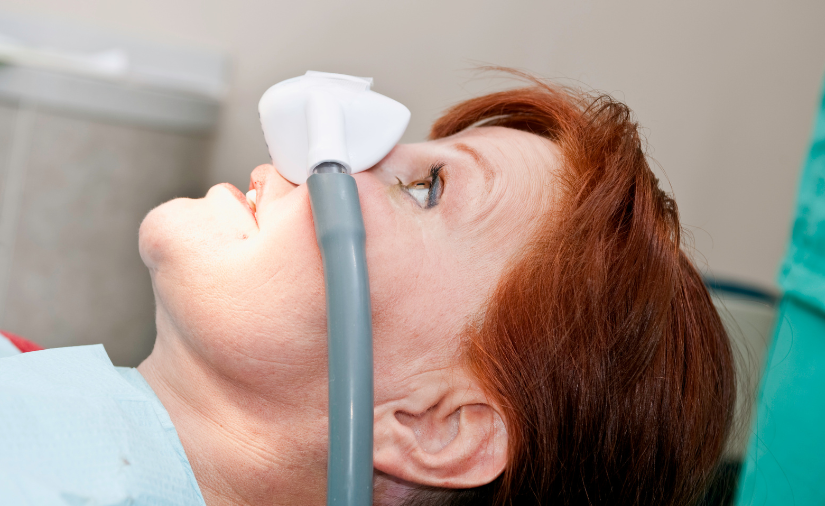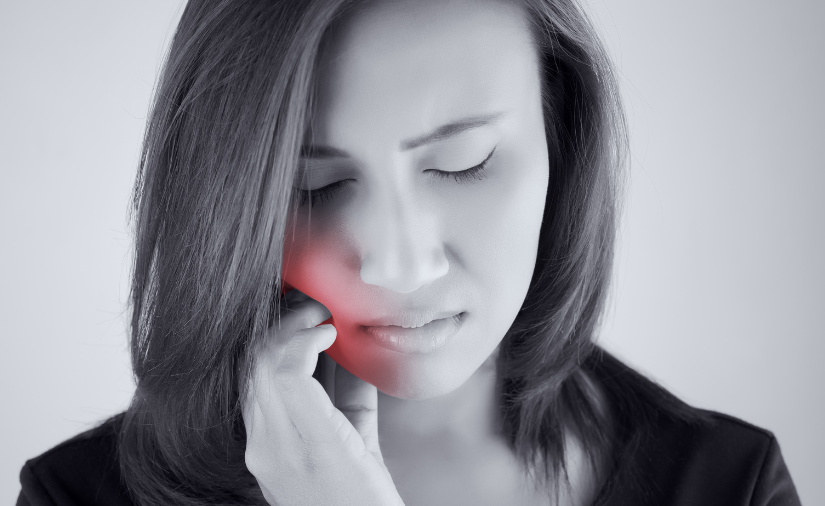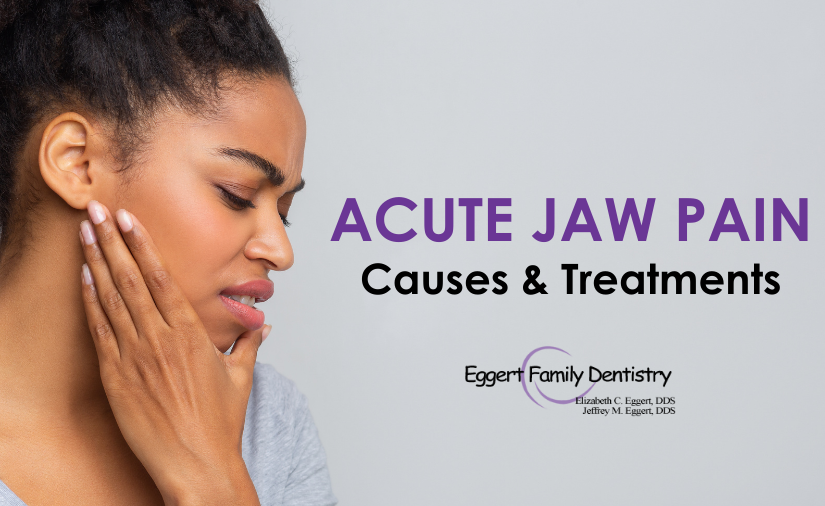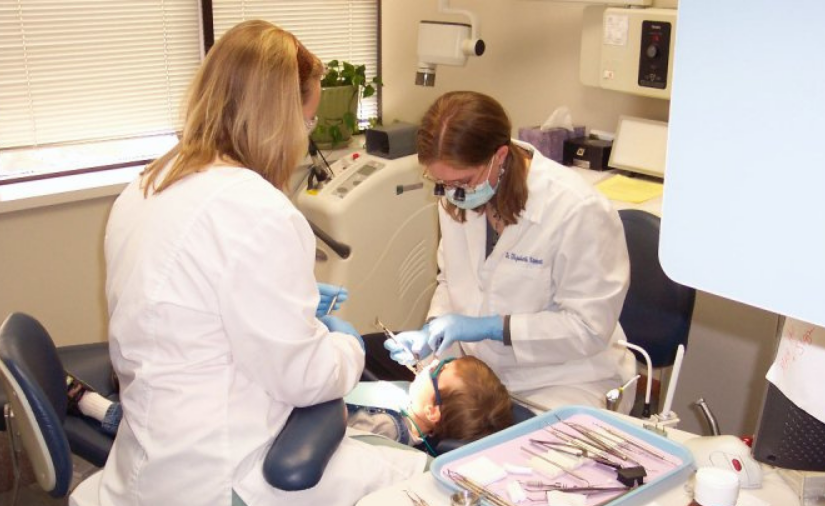By: Dr. Elizabeth Eggert
What Is Laughing Gas?
Nitrous oxide gas – also known as laughing gas – is the most commonly used option to reduce anxiety in dentistry. Nitrous oxide is considered an anxiolytic, which means it doesn’t sedate you, but helps you feel comfortable, free from your usual dental anxieties and able to relax while dental procedures are performed.
Laughing gas is commonly used to help patients who have:
- Dental anxieties or phobias
- Trouble sitting still or cooperating (typically pediatric patients)
- Special needs
- Strong gag reflexes
- Trouble breathing in and out the nose
- An inability to respond adequately to local anesthesia alone
It also works well for children who need to have longer procedures done.
How Does It Work?
Laughing gas is given to patients through a mask that’s placed over the nose. When you breathe, you inhale the gas mixture and fall into a relaxed, nearly euphoric state. This leaves most patients feeling anxiety-free, with all their fears in the distant background.
Although the name laughing gas might make you think the medicine would make you giggly, that’s not how it works. The nitrous oxide slows your nervous system, which makes you feel less inhibited. It might make you feel light or tingly, and some people even say it makes their arms or legs feel like they are floating. The result, however, is that you feel calm and comfortable.
What Are the Benefits of Laughing Gas?
It is used commonly in dental offices because it works quickly and safely to help patients relax. It is given throughout your dental procedure and when the procedure is over, patients breathe pure oxygen through the mask, allowing the effects of the nitrous oxide gas to wear off quickly. Therefore, patients are able to drive themselves home.
In addition, although laughing gas helps you relax, it doesn’t put you to sleep. This helps ensure patients are still able to hear Dr. Elizabeth and Dr. Jeff and respond to any questions or instructions.
What Are the Side Effects?
When laughing gas is given correctly, most patients don’t have any negative side effects when it wears off. However, if the level of nitrous oxide rises too quickly, or if the amount being inhaled changes too quickly, patients may experience side effects such as:
- Headaches
- Shivering
- Excessive sweating
- Nausea or vomiting
- Sleepiness
To prevent headaches, patients are given oxygen for five minutes at the end of the procedure. This helps clear the remaining gas from the lungs, and it helps you become more alert and awake.
You can also help prevent nausea or vomiting by eating lightly before your procedure and avoiding a large meal for up to three hours after your appointment. If you do start to have any of the side effects, Dr. Elizabeth or Dr. Jeff can turn the nitrous oxide level down and by simply breathing more straight oxygen, any adverse side effects diminish quickly.
Interested in Using Laughing Gas at Your Next Appointment?
Laughing gas is a helpful strategy for managing severe pain or dental anxieties. Talk with Dr. Elizabeth or Dr. Jeff if you’re interested in learning more about using nitrous oxide gas at your next appointment. To schedule an appointment, call our office at 651-482-8412.











